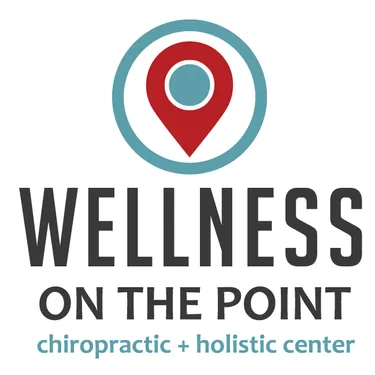
The term frozen shoulder encompasses a wide variety of restrictive shoulder disorders and can also be referred to as adherent bursitis, pericapsulitis, obliterative bursitis and periarthritis. Regardless of what it is called, manipulation of the joint and neuro-muscular-skeletal rehabilitation are needed to resolve the lack of mobility.
Frozen shoulder, also known as adhesive capsulitis, is a malady that affects two to three percent of the population. Often the main indicator is initial pain in the joint and decreased mobility. Frozen shoulder can affect people of any age from children to adulthood, but is most commonly diagnosed in people ranging from 40 - 70 years of age, predominantly women.
The shoulder joint itself is called a ball and socket joint. Ligaments, tendons and muscles work together to provide support, strength and the wide range of motion that enables us to move our arms and hands in a variety of positions in order to complete tasks. All the functions of the shoulder can be compromised by underlying inflammatory diseases and misuse. The specific causes of frozen shoulder perplex are varied and largely still unknown, but onset begins with initial pain, followed by restriction in mobility and finally recovery.
Frozen shoulder can often be referred to as insidious in nature. The symptoms and development of the disorder are slow and can take up to a year or two to set in. Often patients will experience pain that will increase over time. As chemical changes take place in the shoulder joint, thick strands of tissue called adhesions form and begin to restrict mobility. The lubricating synovial capsule in the shoulder joint thickens and provides less lubrication. By the time the sufferer begins to notice a significant issue in lack of mobility, the disorder has set in and requires treatment.
The good news is that although the causes of frozen shoulder are varied, treatment is straight forward and the disorder can be resolved. Often clinicians, including our experienced and caring staff, can provide the correct manipulation and physiotherapy to help you regain mobility and resolve the disorder. Contact our office so we can address your condition immediately.
Causes of Frozen Shoulder
Adhesive capsulitis (Frozen Shoulder) can be attributed to misuse and injury, myocardial infarction, upper torso surgery, such as arm and shoulder surgery or mastectomy, and even lack of use. When the shoulder joint goes unused and remains in the same position for long periods of time, such as when a patient is placed in a sling or unable to use their arm, the joint tightens and mobility is decreased. An autoimmune response in the area may cause the joint to stiffen and restrict the joint causing the initial pain. When the initial pain is not addressed, the inflammatory nature of the disorder will progress and adhesions form in the joint further restricting mobility and increasing the level of pain.
Frozen Shoulder Due to Systemic Disorders
A large population of patients who suffer from systemic diseases may be more likely to develop frozen shoulder. These systemic diseases include those who suffer from thyroid disorders such as hyperthyroid and hypothyroid, both overactive and underactive thyroid function. Other diseases include diabetes, cardiovascular disease, tuberculosis and Parkinson's Disease. Frozen shoulder treatment related to these diseases is paramount and the importance of early diagnosis followed by early manipulation and treatment are necessary, because more drastic treatments are often times not an option. Our chiropractic staff are experts in diagnosing and treating the issue to help resolve your pain and regain your range of motion, so you may return to a normal routine.
Frozen Shoulder in Surgical Patients
Patients who have recently gone through shoulder surgery such as rotator cuff repair or repair to the labrum, one of the many tendons in the shoulder, may experience frozen shoulder. Patients who have had recent mastectomy or cardiovascular surgery are at risk, as well. The reason they are more susceptible to the disorder is lack of use of the shoulder. When the shoulder remains in the same position for a prolonged period of time, the joint stiffens and the pain sets in.
Once the surgical site heals sufficiently, neuro-muscular-skeletal rehabilitation and chiropractic manipulation are highly recommended to help return range of motion to the joint and reduce pain. Our office can develop a program for you that will reduce the pain and increase the range of motion over a healthy period so you can return to a normal schedule in you life.
Chiropractic Treatment of Frozen Shoulder
Chiropractic therapy for frozen shoulder can produce the results you need and resolve your frozen shoulder. Our staff will evaluate your baseline range of motion and pain level to develop a plan tailored to you. In-office neuro-muscular-skeletal rehabilitation coupled with exercise you may do at home will address and increase your range of motion. It will also build the muscle to prevent muscular atrophy or the shrinkage of important muscles in the shoulder. Coupled with treatment for inflammation in the joint space, patients can see improvement over a period of time and resolution of the disorder.
Hard work is the key. Failure to work on stretching in the office as well as at home can delay the recovery process. Trust our staff to direct you along the path to recovery.
Sources:
http://www.diabetes.org/living-with-diabetes/complications/related-conditions/frozen-shoulder.html
http://www.mayoclinic.com/health/frozen-shoulder/DS00416/DSECTION=risk-factors http://www.aafp.org/afp/990401ap/1843.html http://www.healthgrouponline.com/frozenshoulder.html
